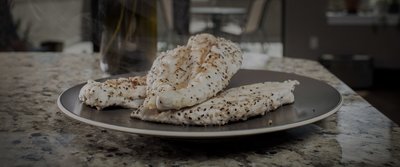Introduction | Nutrition | Tips From The Top
The Importance Of Nutrition
Without the right nutrition the most perfectly structured program would be a complete waste of time. All top athletes will concur that nutrition is over half the battle and will place as much or even more emphasis on their nutritional needs as they would on their training program.
For training progress to occur we need three things: the training stimulus, proper rest, and adequate nutrition. Of these three, nutrition would rank highest as it provides the support growing muscles need and allows for sufficient training intensity in the gym.
The number one reason people usually fail to progress in their training efforts is a lack of nutritional knowledge. Often bodybuilders will find they are eating insufficiently for muscle growth, or they will be eating too much of the wrong kinds of nutrients. The key to eating smart for athletic purposes is to be consistent.
Variety is important but it is worth sticking to a particular diet rather than staggering your approach if long lasting results are to be realized.
Many bodybuilders will eat high carbohydrates one week, low carbohydrates the next. Or they might have two cheat days a week (where anything goes). Not a good idea as the body will need to adjust to a different way of eating and even if it does adjust the athletes will need to resume their diet once again and this will be much harder if they deviate for two days.
The one week diet plan included in this guide can be sued over the entire 12-week training cycle provided to support fat loss and gains in lean body mass. It contains the perfect ratio of proteins, fats and carbohydrates to give you unprecedented gains. But you must be consistent.
So just what are proteins, fats and carbohydrates? Most of us know what these are, but a surprising number of people have no idea. Just the other day I heard someone ask, "How many grams of protein are there in a banana?" With that question in mind we will now turn out attention to the nutritional basics.
When we talk nutrients as they relate to health, fitness and bodybuilding, generally we refer to the big three: protein, carbohydrates and fats, the macronutrients.
Vitamins and minerals, the micronutrients, are also important as they provide the key elements needed for proper metabolic functioning - they support the assimilation of the three macronutrients and are themselves found to varying degrees in proteins, fats and carbohydrates. A description of the macronutrients follows.
Key Nutrients Needed To Achieve Your Best Shape, And What To Avoid
The macronutrients will form the basis of your diet, as they provide the raw materials needed to power through your workouts and grow (15, 16). They consist of the following items.
Protein
Considered the key bodybuilding nutrient, protein, which is comprised of 20 amino acids and supplies four calories per gram, is responsible for building the muscles, along with every cell in our bodies (it forms the basis of our body's 100 or so trillion cells).
Without an adequate supply of protein, no additional muscle growth will result from your training efforts - period (17). In fact, insufficient protein will actually result in muscle wasting, as exemplified by marathon runners, athletes who typically eat very little protein and train for many hours at a time. Of the 20 amino acids found in proteins (amino acids as the structural units of protein determine the quality of a particular protein source), 10 of these are essential and ten are non-essential.
The body can manufacture the non-essential variety, whereas the essential type must be obtained through a proper, balanced diet.
Food sources low in the essential amino acids, therefore, are a poor choice for those who wish to build muscle: this includes those reading this feature The diet given in this guide is highest in proteins with a high biological value (HBV).
High biological value refers to the complete proteins that supply an abundance of muscle-building essential amino acids. These amino acids are of vital importance when one is training intensely with weights as this practice actually results in micro-trauma to the muscle tissue being trained (small tears in the muscle that must be repaired).
This micro-trauma, essentially the destruction of muscle-tissue, requires sufficient protein to rebuild the muscle to greater levels. And with the right amount of protein, combined with a sufficient training stimulus, as outlined in this feature, the muscles should compensate by becoming larger and stronger in preparation for future workouts. They accommodate to the imposed stress only though the replacement of protein levels (18). Muscles need a steady supply of protein at all times to allow for the synthesising of new muscle tissue.
Over the years a debate has raged regarding exactly how much protein a hard training strength/bodybuilding athlete should consume.
Some feel lower levels - .5 grams per pound of bodyweight per day for example - is ample for repair and recovery purposes. This would equate to 90 grams of protein for the 180lb trainee, which could be consumed in three daily 30-gram feedings.
While some still subscribe to this percentage today, most recognize that a hard training bodybuilder, or recreational lifter even, needs at least double this amount, if not more. Some go as high as two to three grams of protein per pound of bodyweight.
For the unique goals of those reading this guide, a figure of one to 1.5 grams of high biological value protein per pound of bodyweight is the ideal and obtaining it is a must. The diet provided here will supply, for those across a broad weight range, between one to 1.5 grams of protein per pound of bodyweight.
This diet is structured in such a way that you will receive, based on your the training objectives of gaining unprecedented muscle size while losing fat, 205 to 235 grams of quality protein per day spread over six meals, each containing around 35 to 41 grams of protein (including protein found in other sources such as oatmeal and whole wheat bread).
On training days an extra 20-30 grams of protein following the weight training session for the purposes of faster muscle recovery (bringing protein for that day to around 250-255) will be consumed.
The smaller feedings of protein throughout the day will assist with proper assimilation (given the smaller, sufficient, amount to be processed at any one time), metabolic function (six smaller meals, as opposed to three larger ones, will speed up the metabolism, thus helping with fat burning) and, of course, muscle building (the muscles will obtain all the amino acids they need for growth throughout the day rather than at certain, less optimal, periods).
The amount of protein included in this diet is optimal for one who is around 205 pounds or under. Those who are heavier will require additional protein so an extra protein shake (supplying around 30 grams of protein) can be taken per day.
Foods that contain the highest biological value proteins, such as eggs, chicken, fish, and milk and steak are best for training purposes as they have a full spectrum of the essential amino acids, which are in the ideal proportion required by humans for survival.
Protein powders, especially those with a whey base (whey is the most rapidly absorbed, highest biological grade powder available), can also be used to get enough of this essential nutrient. To reiterate, for those who exercise regularly and vigorously would require one to 1.5 grams of protein per pound of bodyweight is the ideal.
A 175-pound person would therefore consume between 175 and 262 grams of protein per day. Although 175 grams is okay, somewhere between this figure and 262, for example around 230 grams is best.
Protein Will Help Us To
- Build muscle, as it is the body's repair nutrient.
- Lose body fat, as it stimulates the metabolism like no other nutrient.
- Maintain feelings of fullness, thus eliminating cravings for the wrong foods.
- Enhance tissue repair
- Assist immune function
- Construct essential hormones and enzymes
- Provide energy when carbohydrate is not available
- Preserve lean muscle mass
Protein Sources
- Eggs
- Whey protein supplements
- Milk
- Cottage cheese
- Chicken
- Fish
- Steak
Carbohydrates
If protein is the building nutrient, carbohydrates serve as the primary energy nutrient to power all human movement.
Also supplying four calories per gram, carbohydrates work in tandem with protein to ensure growth as a by-product of resistance training. Without an adequate training stimulus, consuming the required amount of protein may have a negligible effect on muscle growth.
Carbohydrates allow one to train to their fullest potential. Carbohydrates come in several different forms, all of which, in specific quantities at certain times, assist with bodybuilding progress. The two different types of carbohydrates provided in the diet featured in this guide and an explanation of each follow:
Complex Carbohydrates
The complex carbohydrates, so named because they break down over a longer period and sustain us for longer (19), feature prominently in this program as the number one training fuel source. Complex carbohydrates come in two subgroups (starchy and fibrous), which are widely known as "the healthy carbohydrates".
The starchy grouping includes: potatoes, rice, grains, spaghetti, pasta, and wholemeal bread. The starchy carbohydrate component of this diet includes brown rice, wholegrain bread and jacket potatoes as these forms contain more fibre, which helps with fat loss and benefits health generally.
Fibrous carbohydrates, which include asparagus, broccoli, cauliflower, onions, and spinach, generally add volume without excess calories, to the diet. They are often classed as the more nutritionally dense of the carbohydrate sources since they contain a variety of vitamins and minerals. On this basis alone they are very important and should not be overlooked.
The diet provided here includes these mostly in the form of broccoli to speed up the metabolic rate to burn greater levels of body fat while supplying the micronutrients for enhanced metabolic function at all levels.
Simple Carbohydrates
The simple sugar carbohydrates, which include sugar in its various forms, milk, honey, chocolate and cakes, are devoid of the natural nutrients found in complex and fibrous carbohydrates (19). Given these nutrients help with carbohydrate metabolism, the simple carbohydrates, which lack them, will be more readily converted into, and stored as fat.
Additionally, simple sugar carbohydrates often contain various additives, which contribute to poor health and restrict muscle gains. As well they often cause a spike in insulin levels, which results in them being converted into fat. Once insulin is released into the bloodstream in excessive amounts, it takes as much energy as it can find (usually in the form of circulating carbohydrates), which leaves us feeling tired.
These carbohydrates are then usually stored as body fat - one of things we are trying to avoid with this program. The simple sugar carbohydrates are often viewed as the single greatest potential problem for those trying to lose weight.
Simple carbohydrates that contain little simple sugar (a healthier option) include apples, raspberries, melons and oranges. In specific instances these are to be included in place of sugars in this diet.
For the purposes of this program, complex carbohydrates (both starchy and fibrous) are emphasized because of their sustaining nature (19, 20) (providing longer lasting energy for intense training sessions) and since one of the major goals of this programs is to bring body fat levels down: as mentioned they will not cause the rapid accumulation of fat as would the insulin-spiking simple carbohydrates.
Simply carbohydrates are featured to a lesser extent, as they can be beneficial to training progress in smaller quantities. Simple carbohydrates are included in this diet in the form of an energy drink directly following training for rapid energy replenishment purposes.
Carbohydrates Help Us To
- Train hard, as it is the main energy supplier.
- Fill up without filling out, due to the feeling of fullness they provide.
- Supply vitamins and minerals, and fibre.
- They are the body's main source of fuel.
- The body uses carbohydrates primarily for energy purposes.
- All of the tissues and cells in our body can use glucose for energy.
- Carbohydrates are needed for the central nervous system, the kidneys, the brain and the muscles (including the heart) to function properly.
- Carbohydrates can be stored in the muscles and liver and later used for energy.
- They are important in intestinal health and waste elimination.
Carbohydrate Sources
- Brown rice
- Oatmeal
- Whole-wheat bread
- Potatoes
- Sweet potatoes
- Whole-wheat pasta
- Broccoli
- Spinach
- Bananas
- Oranges
- Strawberries
Fats
Like carbohydrates, fats in their various forms provide energy (20, 21). Unlike carbohydrates they will not supply energy in an ideal form (by most estimates) and at nine calories per gram will be more than likely stored as fat, if taken in excess.
From a health standpoint fats are noted as being a contributing factor to heart disease and obesity. However, not all fats are created equal. There are good and bad fats and the diet outlined in this guide is primarily comprised of the beneficial type.
The right type of fats in the correct amount will actually benefit health, as every cell in our body is comprised of a fatty layer (the cell membrane), which helps that cell to function properly.
The cell membrane is the part of the cell that allows the entry of amino acids and carbohydrates and other important metabolites such as lips (or fats), and for the optimal function of each and every cell and elimination of waste products for each cell.
Bad Fats
These types of fats include the saturated and trans varieties and are responsible for the negative health effects fat is often known for (20). Saturated fats are found in animal products and solid at room temperature (meat, seafood, whole-milk dairy products - cheese, milk, and ice cream - poultry skin, and egg yolks) and are main contributors to heart disease (as they raise blood cholesterol levels) and obesity (due to the excess calories they provide, which are more readily stored as fat).
In saying this a very small amount of saturated fat is not necessarily a bad thing as it has been shown to help with testosterone production, which translates to gains in muscle mass and losses in body fat - it is all about striking the right balance as will be shown in this diet (a relatively small amount of saturated fat will come from the various animal products).
Trans fats are the result of the hydrogenation process that occurs when hydrogen is added to a vegetable oil to maintain its shelf life. Trans fat is added to commercial products to enhance longevity and will negatively impact training progress and health if included your diet. It is not a necessary fat, so it is completely left out of the diet program featured in this guide.
Good Fats
Good fats come in two types: monounsaturated (found in natural foods like nuts, avocados, olive oil, and grape-seed oil, corn oil and canola oil) and polyunsaturated (found in vegetable oils, sunflower, cottonseed and fish oils).
Good Source Of Monosaturated Fats.
Of these two, polyunsaturated fat is probably the better choice as it has a wider range of positive benefits (21), which include an ability to significantly reduce inflammation (great for the recovery purposes following training), prevent cancer growth and improve brain function if taken in its omega-three form (20, 21).
For bodybuilders omega-three fish oil (profiled in the supplement section) has been shown to greatly reduce muscle inflammation while playing a role in strengthening joints, making it an obvious choice for anyone who lifts weights. Monounsaturated fat should not be overlooked as it too has some great benefits.
Find Out About The Benefits Of Healthy Fats.
Olive oil, which features in this program as the main fat component along with the polyunsaturated fish oil, is a major aspect of the much-vaunted Mediterranean diet. Olive oil is known to thin the blood and improve overall health as well as enhancing bodybuilding training-results.
One key thing to remember with so called bad fats is they can be found in most of the animal meats consumed in this diet, as well as various packaged products. To avoid the additional calories they provide, trim all visible fat from streak and chicken and buy water packed tuna rather than the oil based variety.
Fats Help Us To
- Experience normal growth and development
- Store energy (fat is the most concentrated source of energy).
- Absorb certain vitamins (like vitamins A, D, E, K, and carotenoids)
- Provide cushioning for the organs
- Maintaining cell membranes
- Provide taste, consistency, and stability to foods
12-Week Diet Plan For A Lean & Hard Muscular Physique
The following plan includes a good balance of proteins, carbohydrates and fats, along with valuable vitamins and minerals to support gains in muscle and performance. This sample plan will outline the desired ratio of each macronutrient needed for you to gain the most from the training program provided.
Food choices can be replaced with a similar product (outlined in the macronutrient overview) but quantity and number of meals will need to be kept consistent over the 12-week period for quality gains.
A larger person training for maximal muscle size can adjust his or her diet for greater protein and complex carbohydrate consumption; a smaller person training for moderate size would need a little less. The diet as it stands should be suitable for the majority of people beginning the 12-week training program provided.
It must be stressed that the following plan is an example of what a typical day's eating could consist of. Although it does contain a good balance of nutrients, it is biased toward building a muscular, high performing physique.
The average person (bodybuilders, by virtue of the extreme demands they place on their body, are not average and need more nutrients) will naturally use a diet lower in overall calories and macronutrients.
Again, the following one-week diet must be used every week for the entire 12-week training program. The same foods are to be eaten every day, but certain food groups can be substituted (refer to macronutrient description above) for varieties sake. Remember, when it comes to nutrition the body thrives on consistency. To force gains in muscle size and fat loss it will be the training that changes.
The composition of this diet is roughly 37.5 percent protein, 47.5 percent carbohydrate and 15 percent fat.
Detailed Diet Plan
Monday
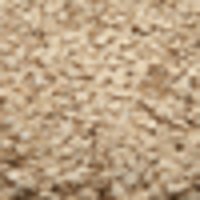 Oatmeal
Oatmeal
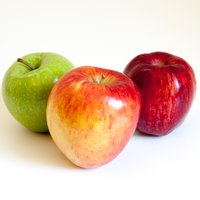 Apple
Apple
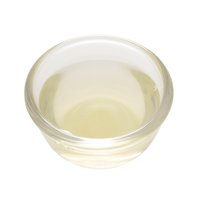 Egg Whites
Egg Whites
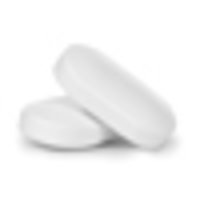 Vitamins
Vitamins
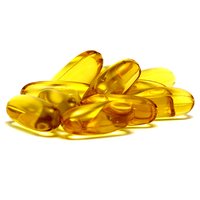 Fish Oil
Fish Oil
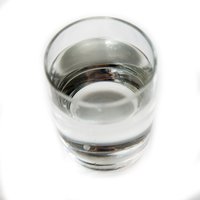 Water
Water
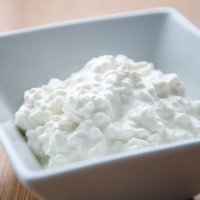 Cottage Cheese
Cottage Cheese
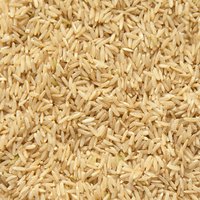 Brown Rice
Brown Rice
 Water
Water
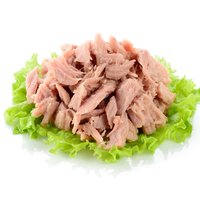 Tuna
Tuna
 Water
Water
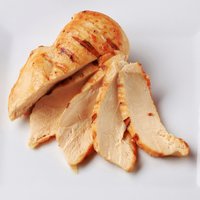 Chicken
Chicken
 Brown Rice
Brown Rice
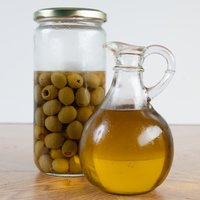 Olive Oil
Olive Oil
 Water
Water
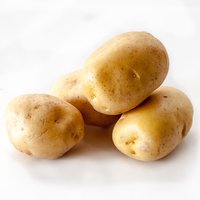 Potato
Potato
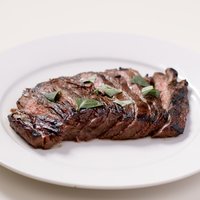 Steak
Steak
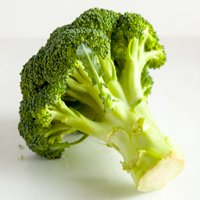 Broccoli
Broccoli
 Water
Water
 Egg Whites
Egg Whites
 Protein Shake
Protein Shake
Tuesday
 Oatmeal
Oatmeal
 Apple
Apple
 Egg Whites
Egg Whites
 Vitamins
Vitamins
 Fish Oil
Fish Oil
 Water
Water
 Tuna
Tuna
 Water
Water
 Cottage Cheese
Cottage Cheese
 Brown Rice
Brown Rice
 Water
Water
 Olive Oil
Olive Oil
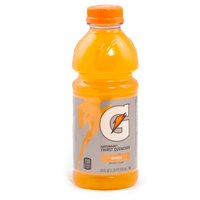 Gatorade
Gatorade
 Chicken
Chicken
 Brown Rice
Brown Rice
 Water
Water
 Potato
Potato
 Broccoli
Broccoli
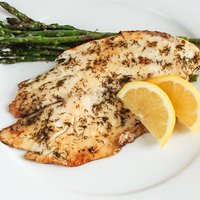 Fish
Fish
 Egg Whites
Egg Whites
 Protein Shake
Protein Shake
Wednesday
 Oatmeal
Oatmeal
 Apple
Apple
 Egg Whites
Egg Whites
 Vitamins
Vitamins
 Fish Oil
Fish Oil
 Brown Rice
Brown Rice
 Water
Water
 Chicken
Chicken
 Tuna
Tuna
 Water
Water
 Chicken
Chicken
 Brown Rice
Brown Rice
 Olive Oil
Olive Oil
 Water
Water
 Potato
Potato
 Steak
Steak
 Broccoli
Broccoli
 Water
Water
 Egg Whites
Egg Whites
 Protein Shake
Protein Shake
Thursday
 Oatmeal
Oatmeal
 Apple
Apple
 Egg Whites
Egg Whites
 Vitamins
Vitamins
 Fish Oil
Fish Oil
 Water
Water
 Tuna
Tuna
 Water
Water
 Cottage Cheese
Cottage Cheese
 Brown Rice
Brown Rice
 Water
Water
 Gatorade
Gatorade
 Chicken
Chicken
 Brown Rice
Brown Rice
 Olive Oil
Olive Oil
 Water
Water
 Potato
Potato
 Steak
Steak
 Broccoli
Broccoli
 Egg Whites
Egg Whites
 Protein Shake
Protein Shake
Friday
 Oatmeal
Oatmeal
 Apple
Apple
 Egg Whites
Egg Whites
 Vitamins
Vitamins
 Fish Oil
Fish Oil
 Water
Water
 Brown Rice
Brown Rice
 Water
Water
 Chicken
Chicken
 Tuna
Tuna
 Water
Water
 Chicken
Chicken
 Brown Rice
Brown Rice
 Olive Oil
Olive Oil
 Water
Water
 Gatorade
Gatorade
 Potato
Potato
 Steak
Steak
 Broccoli
Broccoli
 Cottage Cheese
Cottage Cheese
Saturday
 Oatmeal
Oatmeal
 Apple
Apple
 Egg Whites
Egg Whites
 Vitamins
Vitamins
 Fish Oil
Fish Oil
 Water
Water
 Brown Rice
Brown Rice
 Water
Water
 Chicken
Chicken
 Tuna
Tuna
 Water
Water
 Chicken
Chicken
 Brown Rice
Brown Rice
 Olive Oil
Olive Oil
 Water
Water
 Potato
Potato
 Broccoli
Broccoli
 Fish
Fish
 Egg Whites
Egg Whites
 Protein Shake
Protein Shake
Sunday
 Oatmeal
Oatmeal
 Apple
Apple
 Egg Whites
Egg Whites
 Vitamins
Vitamins
 Fish Oil
Fish Oil
 Water
Water
 Brown Rice
Brown Rice
 Water
Water
 Chicken
Chicken
 Water
Water
 Cottage Cheese
Cottage Cheese
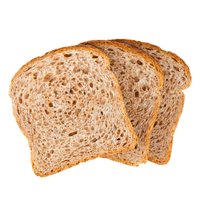 Whole Wheat Bread
Whole Wheat Bread
 Chicken
Chicken
 Brown Rice
Brown Rice
 Olive Oil
Olive Oil
 Water
Water
 Gatorade
Gatorade
 Potato
Potato
 Steak
Steak
 Broccoli
Broccoli
 Water
Water
 Egg Whites
Egg Whites
 Protein Shake
Protein Shake
Nutrition Tips & Notes
Having a well-structured diet with the right amount of protein, fats and carbohydrates is one thing, sicking with it is another entirely. The number one reason people do not progress, as they should be when seeking bodybuilding results, is usually nutrition-related. The following guidelines can be used as keys to muscle growth. Use them consistently and great results will be yours.
Certain foods must also be eaten at certain times, as shown in the diet plan provided. The reasons why the diet is designed the way it is will also be explained below.
Eat Consistently Throughout The Day
This diet is structured in such a way that valuable nutrients will be supplied at regular intervals to maximize muscle growth and fat loss.
Eating six evenly spaced meals per day will ensure that your muscles receive the energy and growth factors needed to facilitate ongoing gains, while stimulating the metabolism (the rate at which the body burns calories) to burn more fat.
To make this diet work it is important that all meals are consumed. Plan your day in advance and have your meals prepared for the following day if need be.
Ensure Food Supply Is Adequate
When aiming to get in all your meals, it is important to have all the foods that comprise your diet readily available. One way to make this important process easier is to shop once a week with a list of all the foods you will need for that week. Once you have all the foods listed in your diet, in the right amounts it should be easier to plan your eating for any given day.
Having all the right foods available will also ensure that you are less likely to cheat on your diet with the wrong foods, something that often occurs with those who have not properly planned their food for the week.
Do Not Cheat!
One other key requirement for making this diet work involves sticking with the foods listed in the plan. This means not cheating on your diet with foods that will impede progress. For the purposes of this diet plan, cheat foods can be defined as those foods that are significantly high in saturated and trans fat and sugar. Cakes, sweets, pizzas, cookies and soft drinks such as Coke fall under this category and should be avoided at all costs - you will get used to a life without these products (you may already not use them, which is good) as your body becomes accustomed to eating the kinds of foods it was originally created to eat.
Junk foods such as those mentioned will interfere with the body's natural metabolic processes, and fat burning and muscle building will suffer as a result. Eliminating obvious junk foods is not to say you cannot, on occasion, substitute a low fat, low simple sugar meal for one listed in this diet. Two great recipe ideas can be found in this guide to incorporate some variety into your program. One such meal per week would be the ideal.
Hydrate
A major component of this diet plan includes adequate water intake throughout the day. Water, a key component for detoxifying the body and assisting with the metabolising of the foods eaten, should never be neglected, especially during humid conditions.
Don't Mistake Thirst For Hunger. Keep Yourself Hydrated.
When training, water is valuable in that it hydrates the muscles, keeping them strong and full, while ensuring nutrients flow freely throughout the body to promote growth. Water also has a major positive effect on fat burning and will encourage feelings of fullness, which will discourage the tendency to eat junk food.
Cut Carbohydrates In The Evening
In this diet carbohydrates are restricted in the evening. Most people who eat a lot of carbohydrates in the evening tend to find it difficult to lose fat and can even begin adding it. Carbohydrates, which will be readily converted to fat if not burned as energy, must be limited after the evening meal, which will come after the afternoon/evening training session.
Although great for energy purposes, any form of carbohydrate will contribute to fat gain if eaten at the wrong time. Eating carbohydrate in the evening is also though to stimulate the appetite to where cheating become more of a possibility. It is best to stick with protein (as outlined in this diet plan) in the evenings.
Eat At Least 2 Hours Before Training
Eating in the hours before training is one of the keys to a great workout. Without sufficient nutrients, most notably carbohydrates, energy levels for training will not be optimal. I have personally found that eating one hour before training will provide more energy than eating two hours out. Try both approaches to find what works best for you. This diet plan is structured in such a way to ensure that you benefit from this pre-workout meal.
Eat Post-Workout
Like pre-workout nutrition, post workout feedings are similarly important. Unlike the pre-workout meal, where energy production is the intended outcome, post workout nutrition will ensure that energy is replaced and protein is supplied to the muscles when they are most receptive to its positive effects (26, 27). Many training experts go as far as to say that the post-workout meal is the second most important feeding of the day, after breakfast.
What Is The Importance Of Post-Workout Nutrition?
After intense training the muscles are typically depleted of carbohydrates, leaving a 30 to 45 minute gap for replenishment. Protein is also rapidly taken into the muscles at this time. I personally recommend, and as noted in this program, a simple sugar formula combined (to be discussed in greater detail in the supplement section) with a serving of whey protein directly after training for effective results. Approximately 45 minutes after this feeding will be the evening meal.
Never Neglect Breakfast
Breakfast being the most important meal of the day has become somewhat of a cliché, for good reason: it is a critical time to supply the body with the nutrients it hungers for after what is essentially an eight to10 hour fast (hence the name breakfast; break-fast).
After your morning cardio it is especially vital that breakfast is eaten; the size of this meal is large in comparison to subsequent meals for that day because it not only replaces carbohydrate that has been used during training and depleted during sleep, but will restore protein balance to assist muscle growth. Occasionally meals will be missed (this is inevitable for most people who live busy lives). Ensure that breakfast is not one of these.
Drink Tea & Coffee Without Sugar & Cream
If you drink tea or coffee, it is best do so without all the extra calories added sugar and cream provide (a small amount of milk should do no harm). It is surprising how many people have the perfect diet but compensate for the lack of simple sugars in this plan by consuming eight to10 teaspoons of sugar during their daily coffee breaks. Doing this can add an additional 160 calories per day of the worst type of nutrient.
Chew Food Thoroughly
One often-overlooked factor when it comes to proper digestion and uptake of nutrients is the actual process of eating. Chewing food properly adds saliva to that food while mashing it up into an easily digestible form. If food is not adequately chewed, the digestion process may not take place as it should and your body may not get the nutrients it needs.
Essential Tips For Optimal Muscle Growth & Fat Loss
- Eat a nutritious meal one to two hours before training to ensure adequate energy levels. Foods to eat at this time can include vegetables of any kind, two pieces of fruit, low fat cottage cheese with carrots, oatmeal and whey protein, or whole meal sandwiches with chicken or beef.
- Eat about 30-minutes after training for replenish energy stores.
- Eat all of the six daily meals outlined in this plan. This will help to ensure adequate energy levels for training and a continual fat burning effect (the after burn).
- Try to cut back on fatty foods, and eat less in the way of carbohydrates (rice, potatoes, vegetables, and fruit) after 6.00pm, as outlined in this plan.
- The key to success with this diet plan is consistency. Meals are based on the same food groups for each day, the only exception being on training days where additional protein and carbohydrates are added following training, and calories are increased overall. Food selection is mixed around for variety, but the same foods will be eaten daily, as they are the most effective for your aims.
- The key for determining the exact nutrients contained in each meal and a total for each meal is as follows: P=protein, C=carbohydrates, F=fats. All nutritional numbers represent grams.
Tips For Chicken, Potatoes And Rice
I suggest boiling up a pot of skinless chicken breasts to be eaten over a two-day period (this would be about four breasts over two days). Potatoes can also be boiled, or baked, and stored in Tupperware containers for up to three days - the same thing with rice. This is all intended to save time.
Weekly Shopping List
- Six 180gram cans of water-packed tuna.
- 11 large sized chicken breasts.
- Two large, and two medium-sized sirloin steaks.
- One package of oatmeal.
- Two kilograms of rice.
- Two loaves of wholemeal bread.
- One bag of apples.
- Six-dozen eggs.
- One bag of potatoes.
- Five 250-gram containers of no (or low) fat cottage cheese.
- 1.5 to two pounds of fresh fish.
- Two bags of broccoli.
- Olive oil, cod-liver oil and whey protein to be bought as needed.

